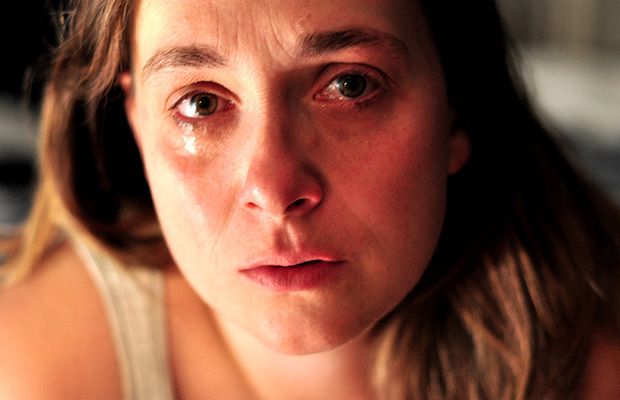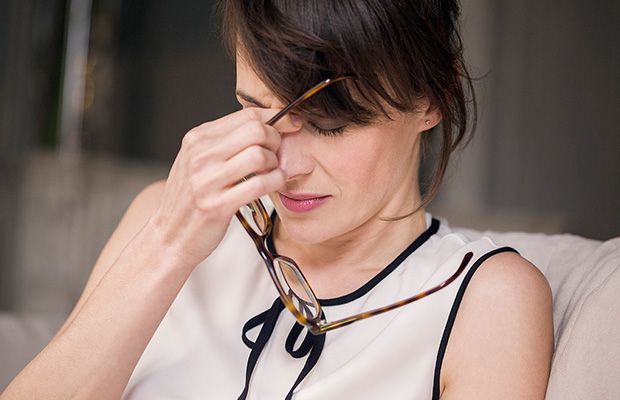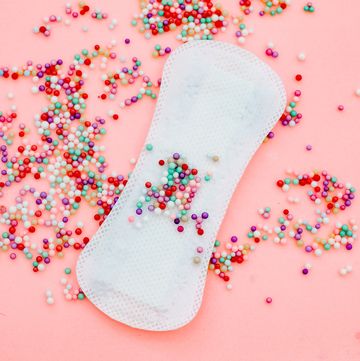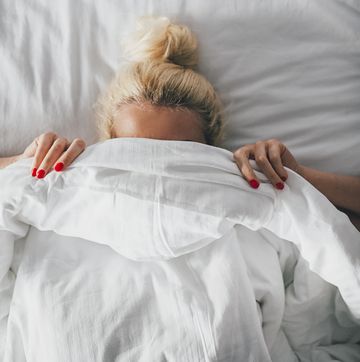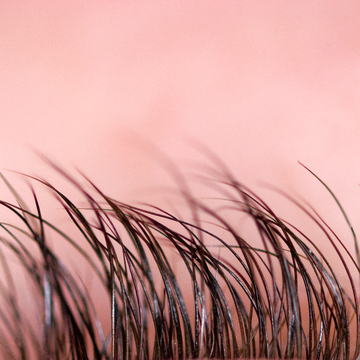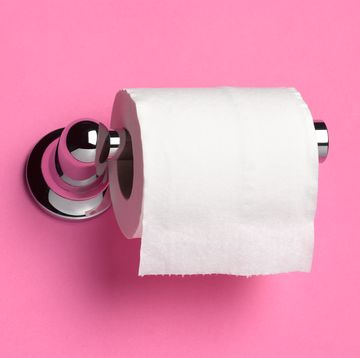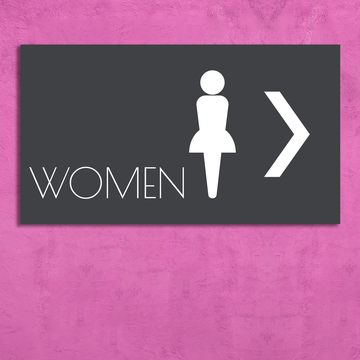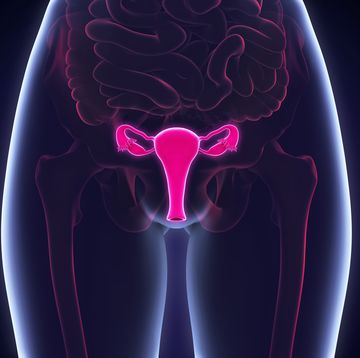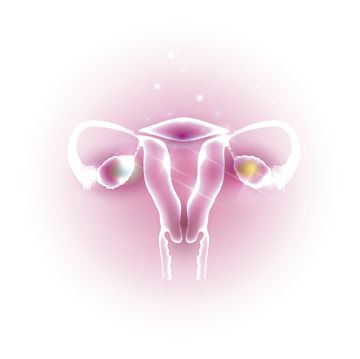Midlife hormone fluctuations are no fun. Unfortunately, there's no one-size-fits-all solution.
"Finding the treatments that work for you may involve trial and error," says JoAnn Pinkerton, MD, an ob-gyn professor and division director of the Midlife Health Center at the University of Virginia.
The strength of your perimenopause symptoms also varies widely. (Not sure what perimenopause is, exactly? Read more here.)
About 25% of women won't have significant symptoms. Half will experience some degree of difficulty—the kind that can be remedied with simple lifestyle changes. The rest may need more intense medical therapy, such as hormone supplementation or antidepressants.
Based on your symptoms, here's what to try first—and where to turn next if you still need relief. (Want to balance your hormones and lose weight? Then check out The Hormone Reset Diet to start feeling and looking better.)
HOT FLASHES
Try this: Start off by wearing cool natural-fiber clothing made of textiles like cotton. Also, keep in mind that spicy foods can trigger hot flashes, as can alcohol. (Calculate the consequences of Mexican food and margaritas before you make dinner plans.) A March 2011 study found that acupuncture significantly lessens the severity of hot flashes. While the research is mixed, yoga, exercise, and omega-3s may all help, too.
Then try this: If your hot flashes are frequent and intense, talk to your health care provider about medical treatment. "The only FDA-approved treatment for hot flashes is hormone therapy," Pinkerton says. Worried about possible health risks from HT? A new analysis of existing research found women under 60 who use HT face no increase in mortality risk.
MORE: 5 Signs You're Not Getting Enough Vitamin D
MOOD SWINGS
Try this: Good nutrition, plenty of sleep, and regular exercise are the holy trinity of a healthy lifestyle—and may also quell your mood swings. You may also want to try St. John's wort supplements. Lots of research suggests this herb can combat mild depression and mood disorders.
Then try this: If your behavior is Exorcist-worthy, consider taking a low-dose oral contraceptive. It can calm mood-altering estrogen spikes. Other underlying medical issues—such as an out-of-whack thyroid—may also be a factor. Keep in mind, too, that some of the common stressors in midlife—aging parents, kids in college, marital issues—could be the source of your emotional turbulence. "Don't blame perimenopause for everything that's wrong in your life," says Judi Chervenak, MD, an ob-gyn with New York's Montefiore Medical Center. "You need to investigate the root cause of the problem." (Here are 14 more natural menopause solutions.)
MORE: 5 Reasons It Hurts Down There
MIGRAINES
Try this: Alcohol, cheese, and chocolate (no!) are common headache triggers. You may have to steer clear of one or all of them. At the same time, exercise is your friend: A 2011 study from the University Clinic of Kiel, Germany, found that people who exercised three times a week had fewer and less-intense migraines than those who didn't work out. It also helps to avoid extreme sensory input, such as bright lights and sun glare, loud sounds, and unusual smells, Pinkerton says. (Here are 7 migraine symptoms to look out for.)
Then try this: Chart your migraines in a diary and talk to your doctor about prescription options. There is a class of migraine medications—known as triptans—that alleviate pain when taken at the onset of symptoms. Some antidepressants, anticonvulsants, and beta-blockers may also help prevent migraines when used daily. Again, talk with your doc. (Read about how this woman beat her migraines naturally.)
POOR SLEEP
Try this: Many perimenopausal symptoms are interrelated. Manage hot flashes using the advice above, and you may sleep better and more soundly. Also, spending the pre-bedtime hours with your phone and drinking too much wine before bed are bad news. "Alcohol helps you fall asleep, but it prevents the deeper stages needed for proper rest," Pinkerton says. On the other hand, exercise and morning sun exposure can help you sleep better at night.
Then try this: A woman's risk for sleep apnea rises around the time of menopause. (Snoring and daytime sleepiness are red flags.) "It's important to speak to your doctor to rule that out," Pinkerton says. If apnea's not to blame, low-dose antidepressants or antianxiety medications may help normalize your sleeping patterns. Prescription sleeping aids, such as Ambien, are a big gun that should be fired with caution. "I don't recommend using it more often than every 3 days," Pinkerton says. (Here are 5 tips to help you fall asleep fast.)
VAGINAL DRYNESS
Try this: At this stage of life, your vagina may not be producing as much moisture. "Ninety percent of women experience vaginal dryness," Chervenak says. When it comes to sex, water-based lubricants—K-Y or Astroglide, to name two—can really help. Internal vaginal moisturizers, which are inserted with an applicator, can be used twice a week. These minimize the pH changes associated with bacterial infections—another common cause of drying and irritation. (Here are 9 other vaginal issues and how to resolve them.)
Then try this: If OTC products aren't cutting it—or if you routinely experience bleeding or vaginal discomfort—talk to your doc about a localized prescription estrogen treatment. These localized treatments help repair vaginal tissue and restore elasticity and moisture, Pinkerton says.

